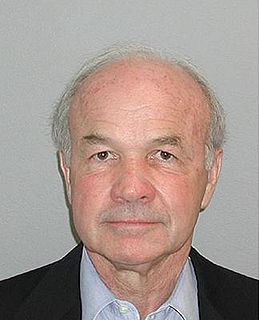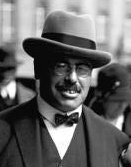A Quote by David Ricardo
But a rise in the wages of labour would not equally affect commodities produced with machinery quickly consumed, and commodities produced with machinery slowly consumed.
Related Quotes
The value of any commodity, therefore, to the person who possesses it, and who means not to use or consume it himself, but to exchange it for other commodities, is equal to the quantity of labour which it enables him to purchase or command. Labour, therefore, is the real measure of the exchangeable value of all commodities. The real price of everything, what everything really costs to the man who wants to acquire it, is the toil and trouble of acquiring it.
The Devil is perfectly willing that the church should multiply its organizations and its deftly contrived machinery for the conquest of the world for Christ, if it will only give up praying...The Devil is not afraid of machinery; he is only afraid of God. And machinery without prayer is machinery without God.
And, inasmuch [as] most good things are produced by labour, it follows that all such things of right belong to those whose labour has produced them. But it has so happened in all ages of the world, that some have laboured, and others have, without labour, enjoyed a large proportion of the fruits. This is wrong, and should not continue. To [secure] to each labourer the whole product of his labour, or as nearly as possible, is a most worthy object of any good government.
In our society, real power does not happen to lie in the political system, it lies in the private economy: that’s where the decisions are made about what’s produced, how much is produced, what’s consumed, where investment takes place, who has jobs, who controls the resources, and so on and so forth. And as long as that remains the case, changes inside the political system can make some difference-I don’t want to say it’s zero-but the differences are going to be very slight.
There is no country in the world where machinery is so lovely as in America. It was not until I had seen the water-works at Chicago that I realised the wonders of machinery; the rise and fall of the steel rods, the symmetrical motion of the great wheels is the most beautiful rhythmic thing I have ever seen.
A farm regulated to production of raw commodities is not a farm at all. It is a temporary blip until the land is used up, the water polluted, the neighbors nauseated, and the air unbreathable. The farmhouse, the concrete, the machinery, and outbuildings become relics of a bygone vibrancy when another family farm moves to the city financial centers for relief.
What has become alien to men is the human component of culture, its closest part, which upholds them against the world. They make common cause with the world against themselves, and the most alienated condition of all, the omnipresence of commodities, their own conversion into appendages of machinery, is for them a mirage of closeness.


































